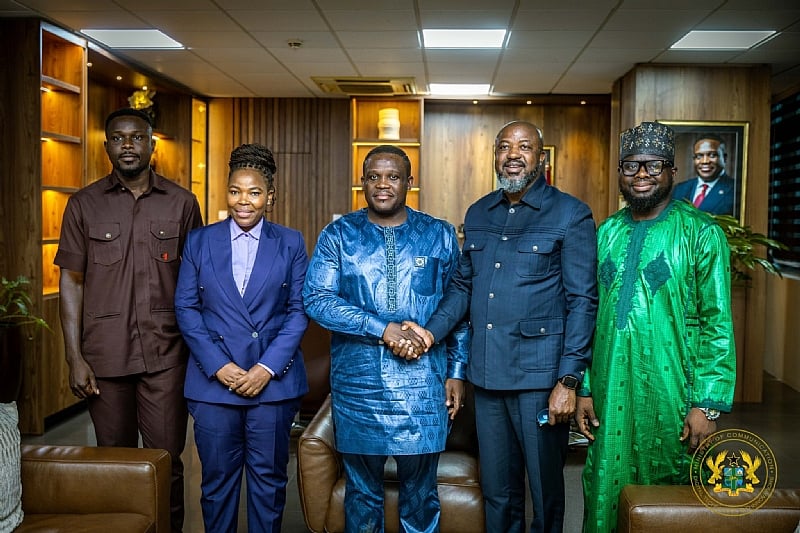The Ghanaian government, through the Ministry of Communication, Digital Technology, and Innovations, is embarking on a significant initiative to bolster the nation’s burgeoning tech startup ecosystem. Minister Samuel Nartey George announced a $50 million investment from the Fintech Development Fund, earmarked specifically for supporting local startups. This investment underscores the government’s commitment to fostering innovation and creating an environment conducive to the growth of tech-driven businesses. The initiative will encompass an incubator and accelerator program designed to nurture startups from their nascent stages to scalable and sustainable enterprises. This commitment to fostering a vibrant tech sector is a key element of the government’s broader strategy for economic growth and national development. The Minister emphasized the importance of this investment as a foundational element in creating a sustainable and thriving technological landscape within Ghana.
The Minister’s vision for this initiative extends beyond immediate financial support. He envisions a robust innovation ecosystem that empowers startups to thrive and contribute meaningfully to the Ghanaian economy. The incubator and accelerator programs will provide crucial resources and mentorship, guiding startups through the often-challenging early stages of development. Furthermore, Mr. George aims to solidify this ecosystem by enshrining it in law, ensuring its continuity and impact beyond his current tenure. This long-term vision underscores the government’s commitment to building a sustainable and impactful tech sector that can contribute to national development for years to come. The Minister believes that this strategic investment, coupled with a supportive regulatory environment, will position Ghana as a leader in technological innovation within the African continent.
The Minister framed the Ministry’s role as a facilitator, leveraging digitalization and technology to empower other ministries and sectors to achieve their objectives. This collaborative approach aims to maximize the impact of technology across various aspects of Ghanaian society. He cited the example of the Ministry providing meteorological data to the Ministry of Agriculture, demonstrating the practical application of technology to enhance food resilience programs. This collaborative model highlights the government’s recognition of the transformative potential of technology across various sectors, not just within the tech industry itself. It emphasizes the importance of cross-sector collaboration and data sharing to achieve national development goals.
The potential for collaboration between the Ministry and organizations like the African Council of Graduates was a central theme during a recent meeting. Minister George expressed enthusiasm for partnerships that focus on youth empowerment through digital skills development, particularly in sectors like agriculture and agro-processing. He highlighted the importance of integrating digital skills training into existing programs, such as the One Million Coders initiative, and supporting innovation and entrepreneurship in key sectors. This emphasis on digital skills development aligns with the government’s broader vision of equipping the Ghanaian workforce with the skills necessary to thrive in the digital age. By focusing on sectors like agriculture and agro-processing, the initiative aims to bridge the digital divide and empower individuals in these crucial industries.
The discussions also explored the potential of drone technology in agriculture and how the Ministry could support such initiatives. The Minister emphasized promoting the adoption of technologies like drones and data analytics to drive efficiency and productivity in the agriculture sector. This focus on technological advancement in agriculture reflects the government’s commitment to modernizing traditional industries and maximizing their potential. By embracing technologies like drones and data analytics, the agricultural sector can improve yields, optimize resource allocation, and enhance overall productivity, contributing to food security and economic growth. The Ministry recognizes the transformative potential of these technologies and aims to facilitate their adoption within the agricultural sector.
The African Council of Graduates proposed a formal Memorandum of Understanding with the Ministry, outlining a framework for collaboration on youth empowerment through digital skills development and innovation. This proposed partnership underscores the importance of collaboration between government and external organizations in achieving shared goals. The MOU would focus on key areas like digital skills development, innovation, and specifically, agriculture and agro-processing. The discussions also included engaging with students before graduation to equip them with digital skills, aiming to reduce unemployment rates and prepare graduates for the demands of the modern workforce. This proactive approach to skills development demonstrates the government’s commitment to addressing the unemployment challenge and ensuring that graduates are well-equipped to contribute meaningfully to the economy. By fostering partnerships and investing in digital skills development, the Ghanaian government is laying the foundation for a vibrant and inclusive digital future.














